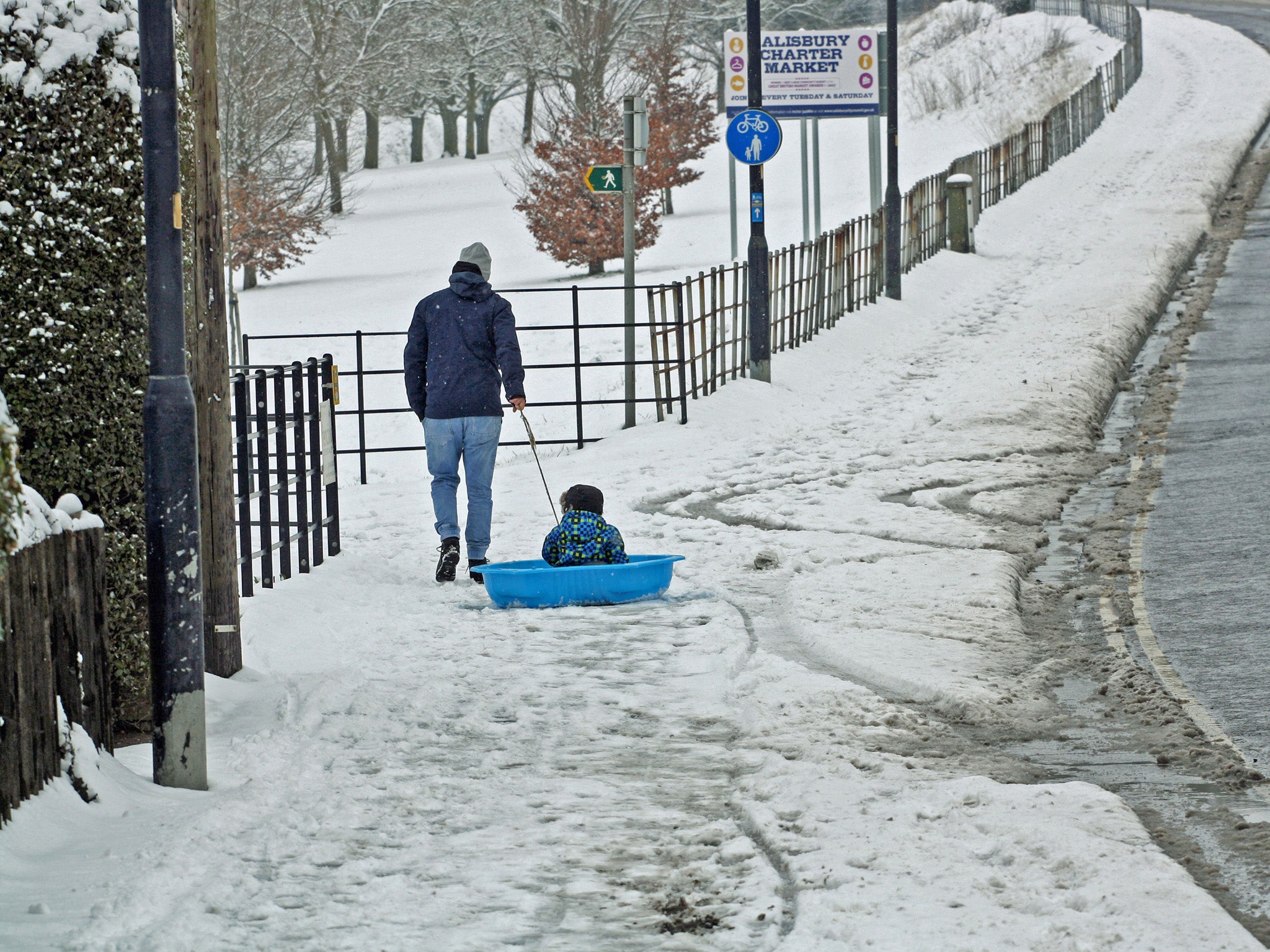Water watchdog Ofwat growls at industry's dismal Beast from the East performance, but will it bite?
The regulator has sharply criticised the response to the cold snap by water companies including Thames Water, Severn Trent, Southern Water and South East Water

Your support helps us to tell the story
From reproductive rights to climate change to Big Tech, The Independent is on the ground when the story is developing. Whether it's investigating the financials of Elon Musk's pro-Trump PAC or producing our latest documentary, 'The A Word', which shines a light on the American women fighting for reproductive rights, we know how important it is to parse out the facts from the messaging.
At such a critical moment in US history, we need reporters on the ground. Your donation allows us to keep sending journalists to speak to both sides of the story.
The Independent is trusted by Americans across the entire political spectrum. And unlike many other quality news outlets, we choose not to lock Americans out of our reporting and analysis with paywalls. We believe quality journalism should be available to everyone, paid for by those who can afford it.
Your support makes all the difference.Water industry watchdog Ofwat apparently wants to show that the “dog” part of that description is a little more feisty than the ageing Labrador sitting by the fire and wagging its tail when the kids come in it has sometimes resembled.
To that extent, the regulator has issued a report, “Out in the Cold”, concerning the dismal performance turned in by parts of the industry in response to the “Beast from the East” cold snap earlier this year. And it’s a document that snarls threateningly.
It takes aim at the “poor” preparation and planning and the fact that some companies struggled to identify where problems were occurring. A lack of anything resembling coordination between them is criticised as is the treatment of vulnerable customers. Some players didn’t appear to understand what “vulnerable” actually means. Then there is the way communication with customers was handled. Apparently, only six in 10 of those affected received any.
“No excuse for this level of failure,” chief executive Rachel Fletcher growled, Doberman style, insisting that Ofwat has teeth and is prepared to use them to tear off a fine or two. Scary.
About time too, bill paying customers who found themselves without supply during a weather event that was nasty, but by no means unprecedented, might very well say.
We know the weather conditions were manageable because parts of the industry did manage them.
Those that did not – Thames Water, Severn Trent, Southern Water and South East Water are singled out – have all been told to submit action plans designed to address their issues.
But perhaps Ofwat should follow suit. Would those companies have turned in such shabby performances had they felt the heat of a hungry pack of watchdogs breathing down their necks? It’s doubtful.
Of course, all those involved are now feeling the heat from a political big dog by the name of Jeremy Corbyn, with his promises of nationalisation that have played rather well with a public that feels increasingly fed up, and have also prompted the government he opposes to wake up to the problem.
If this all ultimately leads to a better water industry, one that doesn’t sit back while gallons of the stuff leaks out onto Britain’s streets, and proves capable of coping with the cold that winter is apt to produce every now and again, then so much the better.
But the road ahead will be a long one. You only have to look at the statement the BBC reported from Water UK, the industry trade body, to see that.
It noted that “fewer than 3 per cent of all customers in England and Wales were affected by supply disruptions during the extreme weather”.
Businesses and their lobbyists just love percentages. They’re a handy way to make big problems look small. The Beast might have hit less than 3 per cent of all customers in England and Wales, but that still amounts to thousands upon thousands of bill payers enduring unnecessary hardship.
Ms Fletcher and her team are surely going to need to show that they can bite as hard as they’re now barking. They would appear to have the political cover to do so, which seems to be crucial when it comes to getting Britain’s supposedly “independent” regulators to take meaningful action.
Join our commenting forum
Join thought-provoking conversations, follow other Independent readers and see their replies
Comments